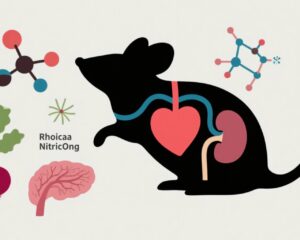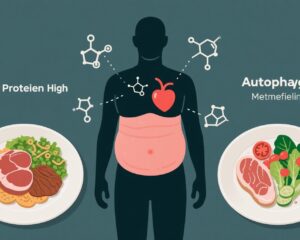Introduction
Cancer remains a critical global health challenge as the second leading cause of death worldwide. Tumor heterogeneity, metastasis, drug resistance, and systemic toxicity limit the efficacy of conventional chemotherapy and radiotherapy. Consequently, there is growing interest in bioactive natural compounds derived from plants and dietary sources that modulate cancer progression with lower toxicity. Betaine (trimethyl glycine) is such a metabolite with notable antioxidant, anti-inflammatory, and epigenetic regulatory roles that have been increasingly associated with anticancer activity. Acting predominantly as a methyl donor in DNA methylation processes, betaine influences gene expression modulating oncogenes and tumor suppressors vital to carcinogenesis. This review critically examines betaine’s mechanisms in tumor suppression, its diverse efficacy across cancer types, and the emerging therapeutic platforms enabled by its chemical derivatives and nanotechnology-based drug delivery systems.
Production and Biological Significance of Betaine
Betaine is endogenously synthesized via choline metabolism or obtained exogenously through dietary intake from sources such as beets, spinach, and wheat germ. It serves as an osmoprotectant stabilizing protein structure and enforces cellular homeostasis under osmotic and oxidative stress. The enzyme betaine–homocysteine methyltransferase (BHMT) catalyzes the methylation of homocysteine to methionine, an essential reaction in one-carbon metabolism pivotal for DNA methylation, synthesis of S-adenosylmethionine (SAM), and regulation of gene expression. Betaine’s ability to modulate methylation patterns links it directly to the epigenetic regulation of cancer-related genes, significantly impacting tumor suppressor gene activation and proto-oncogene silencing.
Mechanisms Underpinning Betaine’s Anticancer Activity
Betaine influences cancer progression primarily through three interrelated mechanisms: epigenetic regulation by enhancing DNA methylation and restoring appropriate gene expression; oxidative stress modulation by regulating glutathione (GSH) and reactive oxygen species (ROS); and anti-inflammatory effects via downregulation of pro-inflammatory transcription factors such as NF-κB and cytokines including TNF-α and IL-6. This multifaceted mode of action facilitates the induction of apoptosis, inhibition of cell proliferation, suppression of angiogenesis, and mitigation of cancer cell metastasis.
Anticancer Effects of Betaine in Specific Malignancies
Breast Cancer
Breast cancer, the most prevalent malignancy among women globally, often develops resistance to standard chemotherapy. Betaine and its derivatives have demonstrated significant apoptosis induction and tumor size reduction in experimental models. For instance, gallium-tetrachloride-betain complexes reduce oxidative stress and enhance caspase-3 dependent apoptosis in mammary tumors. Moreover, PEGylated chitosan nanoparticles co-loaded with betaine and nedaplatin provide enhanced drug bioavailability and tumor suppression. Betaine also assists wound healing in breast cancer patients by mitigating biofilm formation when combined with antiseptics such as silver sulfadiazine.
Lung Cancer
Betaine synergizes with C-phycocyanin, a natural pigment with anticancer properties, producing additive antiproliferative and proapoptotic effects on non-small cell lung cancer cells (A549). The combined treatment arrests the cell cycle and modulates key signaling pathways, such as p38 MAPK and AKT, reducing tumor growth in vivo.
Cervical Cancer
Betaine suppresses proliferation of HeLa cells by promoting apoptosis and cell cycle arrest at G1/S and S/G2 checkpoints. This effect is accompanied by synchronized expression of apoptosis-related genes such as BAX, P53, and caspase-3, further emphasizing its therapeutic potential.
Colorectal Cancer
In colitis-associated colorectal cancer models, betaine reduces inflammatory cytokines and oxidative stress by modulating NF-κB and other inflammatory mediators. It significantly lowers tumor incidence and suppresses markers of inflammation, highlighting its prophylactic and therapeutic roles.
Prostate Cancer
Dose-dependent antiproliferative effects of betaine in DU-145 and C4-2B prostate cancer cell lines are linked to increased oxidative stress and activation of apoptosis pathways involving caspases and Bax, alongside inhibition of the PI3K/AKT/NF-κB signaling axis.
Oral Squamous Cell Carcinoma
Combined dietary betaines, valerobetaine and γ-butyrobetaine, increase reactive oxygen species generation and activate sirtuin 1 (SIRT1), leading to cyclin B1 degradation, decreased proliferation, and induction of apoptosis in oral cancer cell lines.
Hepatocellular Carcinoma
Betaine’s hepatoprotective effects are evident in experimental hepatic cancer models induced by diethylnitrosamine, where it restores methylation balance, regulating oncogenes (c-myc) and tumor suppressors (p16). Additionally, betaine counters hepatitis B virus replication and resistance mutations, indicating antiviral and anticancer synergy relevant to liver carcinogenesis.
Innovations in Betaine-Based Drug Delivery and Derivatives
To overcome challenges in chemotherapy such as systemic toxicity and drug resistance, betaine has been incorporated into advanced drug delivery systems (DDSs) including polymeric nanoparticles, liposomes, and metal-organic frameworks. Complexes of betaine with macrocycles like p-sulfonatocalixarenes enhance drug bioavailability and selective cytotoxicity. Betaine conjugation with chemotherapeutics like dasatinib and chlorambucil has improved solubility, controlled release, and anticancer potency. Furthermore, betaine-modified polyethylenimine nanosystems facilitate co-delivery of doxorubicin and siRNA, overcoming drug resistance via gene silencing. Sulfur-modified betaine derivatives add redox activity and targeting specificity, expanding the therapeutic potential.
Cytoprotective Properties During Chemotherapy
Betaine mitigates chemotherapy-induced adverse effects: it prevents doxorubicin-induced cardiotoxicity by reducing oxidative stress, calcium dysregulation, and apoptosis; reduces cisplatin-induced nephrotoxicity by lowering lipid peroxidation and inflammation; and alleviates hepatotoxicity by enhancing antioxidant defenses and suppressing inflammatory transcription factors such as NF-κB.
Clinical Trials, Safety, and Dosage Considerations
Although direct clinical trials of betaine in cancer are limited, observational and experimental studies correlate higher betaine levels with reduced cancer risk, particularly colorectal cancers. Betaine supplementation improves chemotherapy tolerance in acute lymphoblastic leukemia by restoring critical methyl donors. It is generally safe with oral doses up to 4 g/day well tolerated; mild gastrointestinal side effects may occur at higher doses. Preclinical toxicity studies confirm a wide safety margin.
Conclusion
Betaine and its derivatives represent promising adjuncts or alternatives in cancer treatment, exerting multiple anticancer effects through epigenetic regulation, antioxidation, and apoptosis induction. The integration of betaine into nanotechnology-enabled drug delivery platforms enhances therapeutic efficacy and safety profiles. Though preclinical data are encouraging, further rigorous clinical trials are necessary to establish betaine’s definitive role in oncology practice. Betaine’s natural origin, favorable safety, and multifactorial mechanisms highlight its potential to address unmet needs in diverse cancer types, particularly in overcoming drug resistance and improving patient tolerance.
AI Image Prompt
“Illustration of betaine molecular structure interacting with DNA and signaling pathways in cancer cells, surrounded by nanoparticles and drug conjugates highlighting targeted drug delivery, all rendered in a medical schematic style suitable for oncology research publication.”



